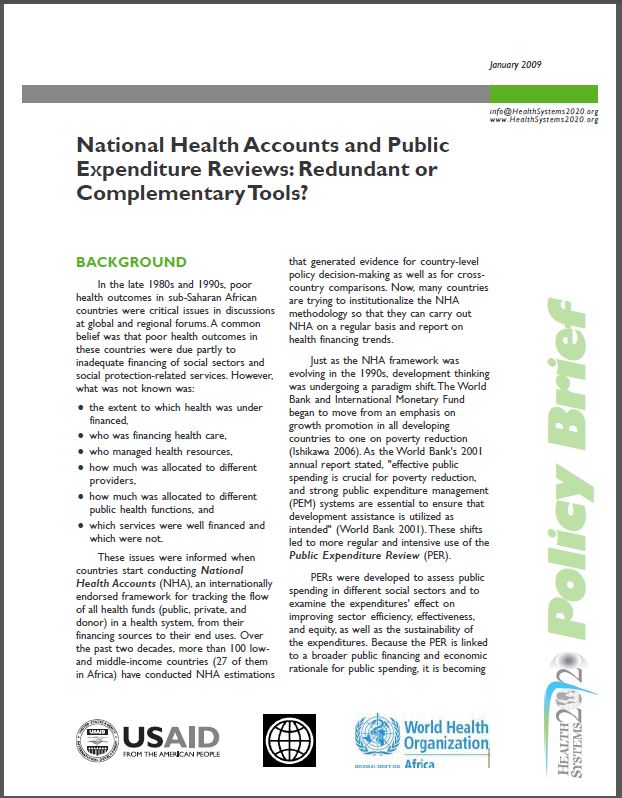National Health Accounts and Public Expenditure Reviews: Redundant or Complementary Tools?
Categories: Health Systems 20/20 Project, Publications, Resource Tracking (NHA, SHA)
Resource Type: Brief
Authors: Hailu Zelelew and Susna De
Published: 1/1/2009
In the late 1980s and 1990s, poor health outcomes in sub-Saharan African countries were critical issues in discussions at global and regional forums. A common belief was that poor health outcomes in these countries were due partly to inadequate financing of social sectors and social protection-related services. However, what was not known was:
- the extent to which health was under financed,
- who was financing health care,
- who managed health resources,
- how much was allocated to different providers,
- how much was allocated to different public health functions, and
- which services were well financed and which were not.
These issues were informed when countries start conducting National Health Accounts (NHA), an internationally endorsed framework for tracking the flow of all health funds in a health system, from their financing sources to their end uses. Just as the NHA framework was evolving in the 1990s, development thinking was undergoing a paradigm shift. These shifts led to more regular and intensive use of the Public Expenditure Review (PER).
Government and donor promotion of both NHA and PER raises the question, Is there a need to conduct NHA in countries that are undertaking PER and vice versa, or are these tools redundant? This issue is of particular concern to African countries and to development partners including the World Bank that are increasingly implementing NHA and
conducting an increasing number of PERs in Africa.




